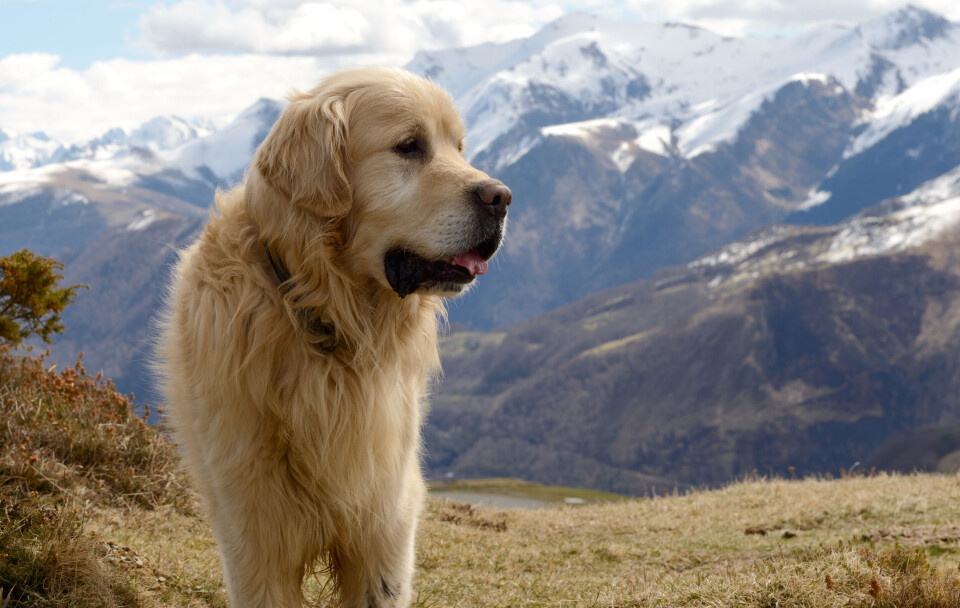-
French ski resorts report excellent Christmas despite less snow than last year
Bookings are up and non-snow related activities are also on the rise
-
Duck Cold! Four French phrases to use when it is freezing outside
We remind you of French expressions to use to describe the drop in temperature
-
When and why do we say le moral dans les chaussettes?
We explore this useful expression that describes low spirits
Farmers and hikers given safety tips on French Pyrenean Mountain Dogs
The dogs are trained to prevent attacks on livestock in mountain areas and can become aggressive if they feel threatened. Here’s what to do if you come across one when hiking

French owners of Pyrenean Mountain Dogs, also known as Patou and Great Pyrenees, are being offered courses in how to care for the breed, which can be dangerous to hikers if not well trained.
The courses by la Chambre d'Agriculture de Dordogne offer two days of training for farmers who own such dogs. They include tips on how to introduce a new dog to a pack, and how to respect codes of behaviour suited to the animal.
The Patou breed was only officially recognised in 1923, but its origins date back at least to the Middle Ages. Originally from the central Pyrenees, the mountain dog was used to hunt bears until the 19th century. It continues to be used to protect herds in the Alps and Pyrenees.
They have a mainly-white coat with patches of black, brown or grey, and a “teddy bear-like” appearance that belies their ferocity. They can weigh 50-75kg, and measure more than 80cm high, with jaws that can apply up to 150kg of pressure. They can easily grow to be taller than a human when standing on their hind legs.
In France, they are not family pets, herding dogs, or attack dogs, but are rather intended to keep watch and serve as guard dogs for livestock, especially in areas in which bears or wolves are a risk.
They are intended to act as a deterrent, rather than as an angry attacker, and are not naturally aggressive, although they can become so if threatened or their livestock are at risk.
Strict rules must be followed when training the dogs and introducing them to livestock and their pack.
Hikers are also warned to be alert, and to understand how to behave if they come across one while walking.
Tips include:
-
Stay alert if you know you are walking in mountain areas in which the dogs are more common
-
Stay on marked paths or trails and keep watch for any signs indicating where dogs may be
-
Keep a wide distance and do not approach the dog or surrounding livestock
-
Do not approach to stroke or otherwise touch, or speak to, the dog (or the livestock)
-
If you find yourself closer than you would like, stay calm and carefully put distance between you as calmly but quickly as possible, with no sudden movements or noises
-
Do not take photos of the dog or give it anything to eat
-
If the dog approaches you, try to stay calm and keep walking away from its field steadily
-
Do not run or shout
-
Cyclists should dismount and walk calmly with their bike
-
If the dog follows you, just ignore it. It will likely be checking that you are leaving the area.
-
If you are walking with your own dog, keep it on a short lead and try to prevent any aggression being shown
Dog attacks on hikers are rare, but do happen.
In September 2021, a hiker was attacked by three Great Pyrenees mountain dogs while walking in Drôme, in the French Alps. The attack prompted the local sheep federation to apologise, and caused questions to be asked over whether hiking routes should pass so close to livestock areas.
The man was helped by other walkers, as well as one of the local shepherds, before being taken to A&E at Valence hospital. He has since said that hiking trails pass too close to the guardian dogs’ areas.
Frédéric Gontard, a sheep farmer and president of the departmental sheep federation in Drôme, apologised for the accident on behalf of the profession at the time.
But he added that the guard dogs were only needed because of the wolves, which are controversial among farmers in the region.
He said: “The price to pay for having the wolves is the guard dogs; take the wolves away, we’ll take the guard dogs away.”
Related articles
























